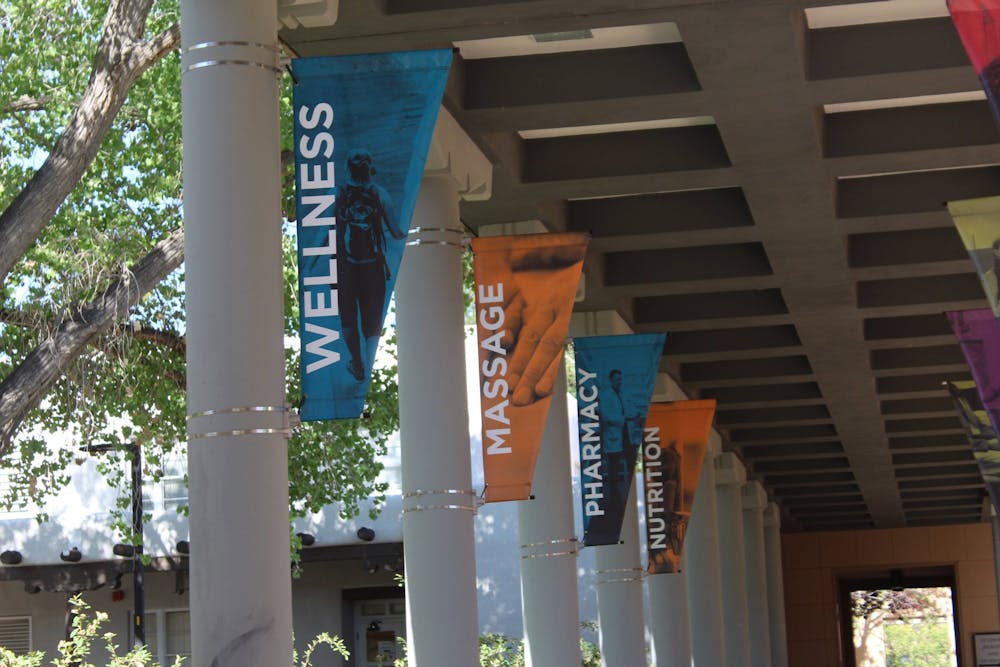Through the school’s Student Health and Counseling service, the University of New Mexico is one of only 46 universities across the nation that offers gender-affirming vocal therapy, according to Speech Pathology Master’s Programs. The program follows the World Professional Association for Transgender Health standards of care to provide primarily voice feminization therapy to transfemininine women, as estrogen, unlike testosterone, cannot alter physical vocal composition; only vocal training or a glottoplasty can.
Moira Ellis, a mentor for graduate students working through their clinical rotation in the Speech-Language-Hearing Center at SHAC, said that, until recently, the majority of people participating in the vocal training programs were trans women over 40 — many of them in their 60s. Over the past few years, however, Ellis’ program has expanded greatly, now providing vocal training for younger people in a broader scope and offering both voice feminization and masculinization therapy.
“We’re expanding it … The voice fem group was getting younger and younger,” Ellis said. “We have an adult group and a teen group (now) … We started a voice group for transmasculine and nonbinary.”
UNM junior Alex Moulton began his medical transition two years ago, opting for testosterone shots in the same week of his high school graduation. Before beginning testosterone, Moulton expressed that he often felt dysphoric or disconnected from his voice.
“I would open my mouth sometimes and I'd be like, ‘yo, who's talking,’” Moulton said. “I hated talking … It felt like someone else was talking.”
This vocal dysphoria is common within the trans community, according to Ellis.
“It’s something that’s really triggering for (some) people; our voice is so tied to our identity and our expression,” Ellis said. “The beautiful thing about working on voice is that it is malleable and flexible and changeable, so while there are some anatomical and physiological constraints, the behavioral aspect of it is kind of like training for any other motor-based activity. So, it's something people can do that's not medically invasive.”
In providing this service, though, it’s endlessly important to first create a safe, comfortable space for a group facing great systemic bigotry, according to Ellis.
“The folks we work with are dealing with a lot … We’re really just facilitators and experts in the mechanisms for how voice is produced and the emotional aspects related to it and how that affects the perceptual qualities,” Ellis said. “So it's just really amazing to see people feel safe enough to explore how they can manipulate it … We’re there to kind of educate and make sure that they’re working toward a sustainable voice that is healthy and won’t cause damage over time.”
Though Moulton hasn’t participated in clinical vocal training himself, he stresses the importance of safe, healthy gender-affirming vocal care.
“Trans women, they literally have to train their voices (to achieve vocal feminization) … Estrogen can't change their vocal chords in the way testosterone does for trans men,” Moulton said. “(And) trans men … who can’t get their hands on testosterone … it would be super valuable for (them as well).”
Despite the challenge of vocal dysphoria, working toward passability is a personal choice, and this process of transitioning is not required, nor should it be pitied. This considered, it’s important to recognize the struggles of transgendered and gender-nonconforming people and their immense resilience as a collective.
Get content from The Daily Lobo delivered to your inbox
“I have some rough days … but I just kinda let it fall off my back like water … like I’m a duck,” Moulton said. “I’ve always been very resilient.”
Natalie Jude is the design director at the Daily Lobo. They can be reached at designdirector@dailylobo.com or on Twitter @natalaroni






